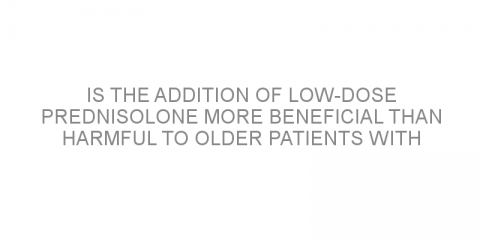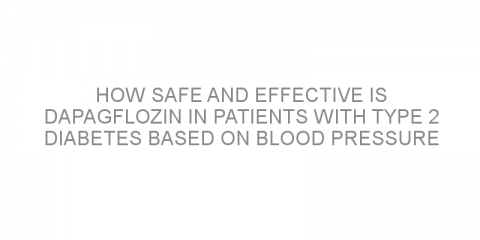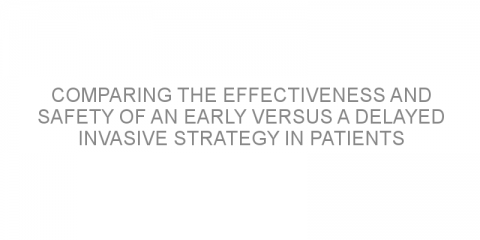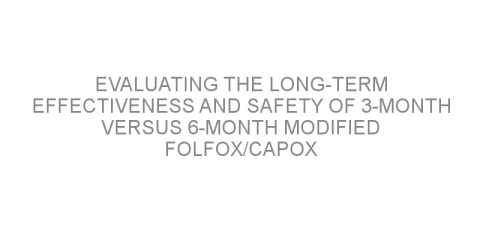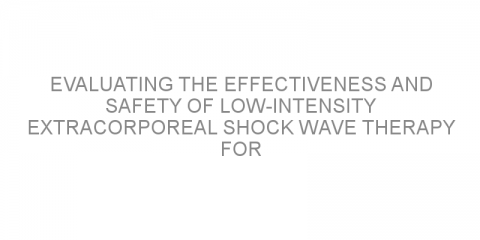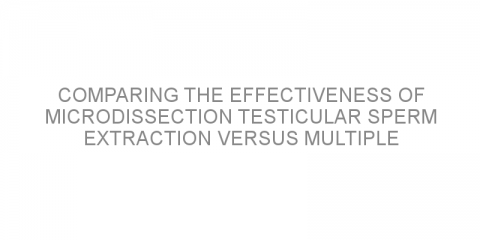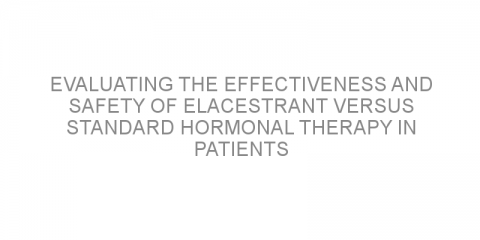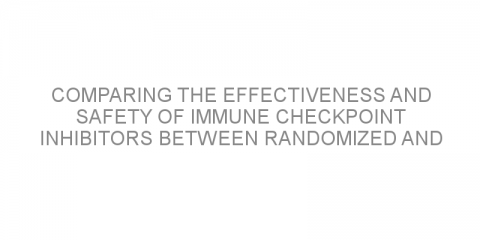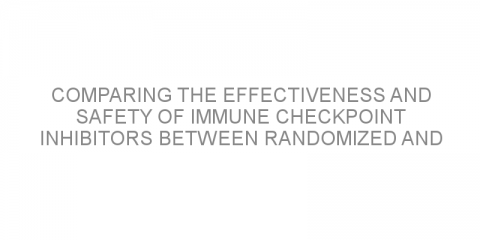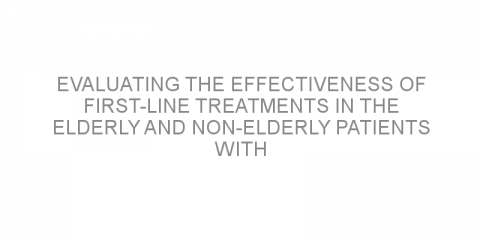In a nutshell This study assessed the effectiveness and safety of daily administered prednisolone (Prelone) at a dose of 5 mg, as an add-on to the standard of care (SOC) in older patients with rheumatoid arthritis (RA). The authors concluded that low-dose prednisolone added to SOC had long-term benefits in these patients with a favorable balance of...
Read MoreTreatment Posts on Medivizor
How safe and effective is dapagflozin in patients with type 2 diabetes based on blood pressure levels?
In a nutshell This study analyzed the safety and effectiveness of dapagliflozin (Farxiga) in patients with type 2 diabetes (T2D) across different ranges of baseline systolic blood pressure (SBP; blood pressure when the heart beats). The data suggested that dapagliflozin reduced the risk of hospitalization for heart failure (HHF) and kidney-related...
Read MoreComparing the effectiveness and safety of an early versus a delayed invasive strategy in patients with non-ST elevation acute coronary syndrome.
In a nutshell This study compared the effectiveness and safety of an early and a delayed invasive strategy (IS) in patients with non-ST elevation acute coronary syndrome (NSTE-ACS). The data showed that there were no significant differences in the risk of death, heart attacks, stroke rates, major bleeding, or revascularization between early and delayed...
Read MoreEvaluating the long-term effectiveness and safety of 3-month versus 6-month modified FOLFOX/CAPOX treatment after surgery in patients with stage 3 colon cancer.
In a nutshell This study evaluated the long-term effectiveness and safety of 3-month versus 6-month modified FOLFOX (5-fluorouracil, leucovorin, and oxaliplatin) or CAPOX (capecitabine and oxaliplatin) treatment after surgery in patients with stage 3 colon cancer. The data showed that 3-month modified FOLFOX/CAPOX treatment was as effective and safe as...
Read MoreEvaluating the effectiveness and safety of low-intensity extracorporeal shock wave therapy for patients with diabetes and erectile dysfunction.
In a nutshell This study evaluated the effectiveness and safety of low-intensity extracorporeal shock wave therapy (Li-ESWT) for patients with diabetes and erectile dysfunction (ED). The data showed that Li-ESWT was safe and effective in improving the symptoms of ED in these patients. Some background Erectile dysfunction (ED) consists of the inability...
Read MoreEvaluating the effectiveness and safety of low-intensity extracorporeal shock wave therapy for patients with diabetes and erectile dysfunction.
In a nutshell This study evaluated the effectiveness and safety of low-intensity extracorporeal shock wave therapy (Li-ESWT) for patients with diabetes and erectile dysfunction (ED). The data showed that Li-ESWT was safe and effective in improving the symptoms of ED in these patients. Some background Erectile dysfunction (ED) consists of the inability...
Read MoreComparing the effectiveness of microdissection testicular sperm extraction versus multiple needle-pass percutaneous testicular sperm aspiration in infertile men with non-obstructive azoospermia.
In a nutshell This study directly compared the effectiveness of microdissection testicular sperm extraction (mTESE) versus multiple needle-pass percutaneous testicular sperm aspiration (TESA) in infertile men with non-obstructive azoospermia (NOA). The data showed that the sperm retrieval rate was higher with mTESE than with multiple needle-pass...
Read MoreEvaluating the effectiveness and safety of elacestrant versus standard hormonal therapy in patients with ER+/HER2- advanced BC.
In a nutshell This study evaluated the effectiveness and safety of elacestrant (RAD1901) versus standard hormonal therapy in patients with estrogen receptor-positive (ER+) and HER2-negative (HER2-) advanced breast cancer (BC). The data showed that elacestrant significantly improved survival without cancer worsening with manageable side effects in these...
Read MoreComparing the effectiveness and safety of immune checkpoint inhibitors between randomized and real-world studies in patients with advanced NSCLC or melanoma.
In a nutshell This study compared the effectiveness and safety of immune checkpoint inhibitors (ICIs) between randomized and real-world studies in patients with advanced non-small cell lung cancer (NSCLC) or melanoma. The data showed that ICIs were similarly effective and safe in both randomized and real-world studies for these patients. Some background...
Read MoreComparing the effectiveness and safety of immune checkpoint inhibitors between randomized and real-world studies in patients with advanced NSCLC or melanoma.
In a nutshell This study compared the effectiveness and safety of immune checkpoint inhibitors (ICIs) between randomized and real-world studies in patients with advanced non-small cell lung cancer (NSCLC) or melanoma. The data showed that ICIs were similarly effective and safe in both randomized and real-world studies for these patients. Some background...
Read MoreEvaluating the effectiveness of adding short-term androgen deprivation therapy with or without pelvic lymph node treatment to prostate bed salvage radiotherapy in patients with resected prostate cancer.
In a nutshell This study evaluated the effectiveness and safety of adding short-term androgen deprivation therapy (ADT) with or without pelvic lymph node radiotherapy (PLNRT) to prostate bed salvage radiotherapy (PBRT) after surgery in patients with prostate cancer (PC). The study found that adding short-term ADT and PLNRT to PBRT significantly improved...
Read MoreEvaluating the effectiveness of first-line treatments in the elderly and non-elderly patients with advanced EGFR-mutated NSCLC.
In a nutshell This study evaluated the effectiveness of different first-line treatments in elderly and non-elderly patients with advanced epidermal growth factor receptor (EGFR)-mutated non-small cell lung cancer (NSCLC). The data showed that osimertinib (Tagrisso) was the best treatment regimen to improve survival without cancer worsening in elderly...
Read More
